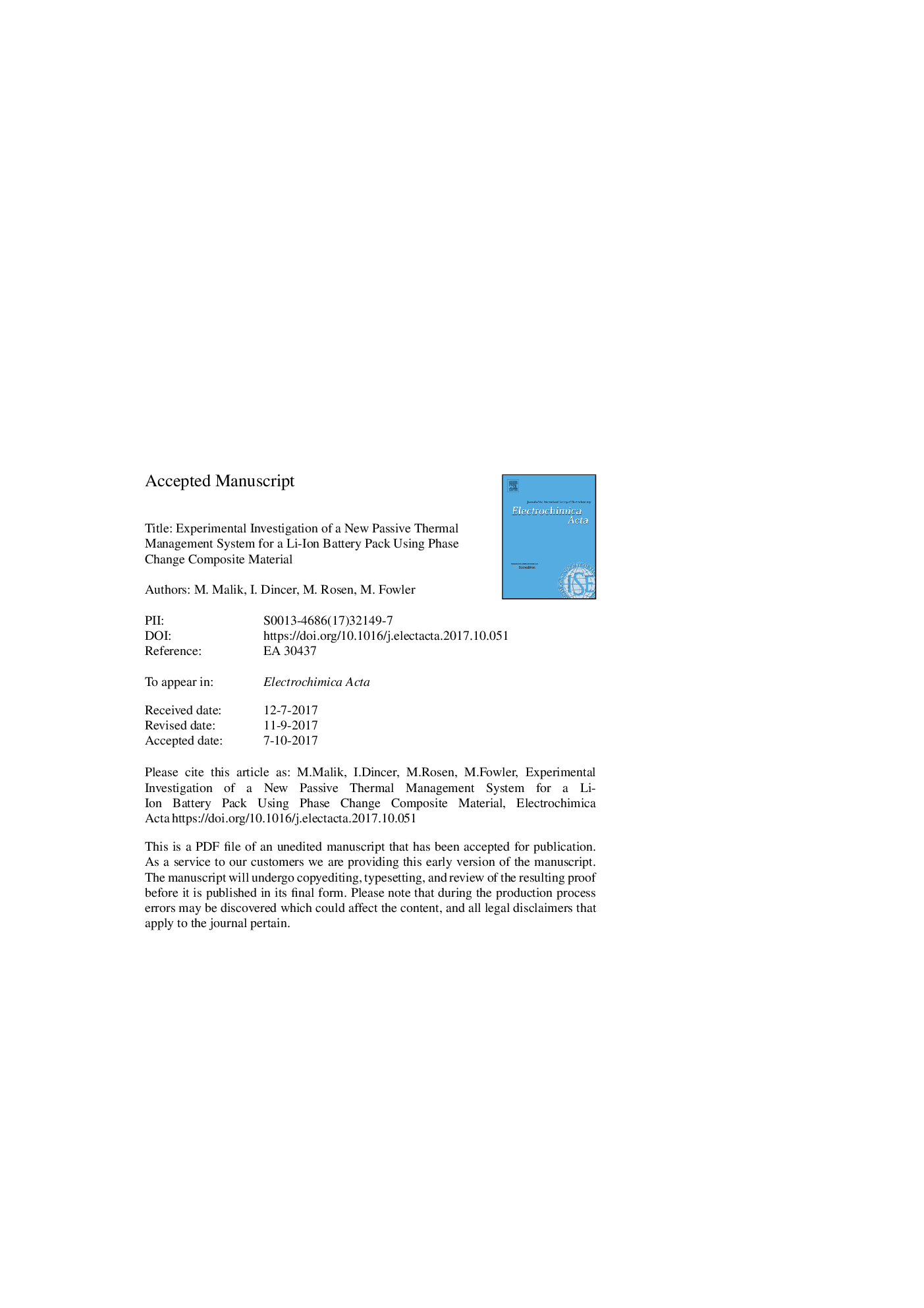ترجمه فارسی عنوان مقاله
بررسی تجربی یک سیستم مدیریت حرارتی منفعل جدید برای یک باتری لیتیوم یون با استفاده از مواد کامپوزیتی تغییر فاز
عنوان انگلیسی
Experimental Investigation of a New Passive Thermal Management System for a Li-Ion Battery Pack Using Phase Change Composite Material
| کد مقاله | سال انتشار | تعداد صفحات مقاله انگلیسی |
|---|---|---|
| 136703 | 2017 | 14 صفحه PDF |
منبع

Publisher : Elsevier - Science Direct (الزویر - ساینس دایرکت)
Journal : Electrochimica Acta, Volume 257, 10 December 2017, Pages 345-355
ترجمه کلمات کلیدی
باتری لیتیوم یون، مدیریت حرارتی، مواد کامپوزیتی تغییر فاز، شیب درجه حرارت،
کلمات کلیدی انگلیسی
Lithium-ion battery; Thermal management; Phase change composite material; Temperature gradient;

